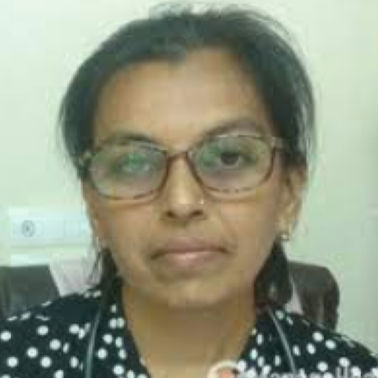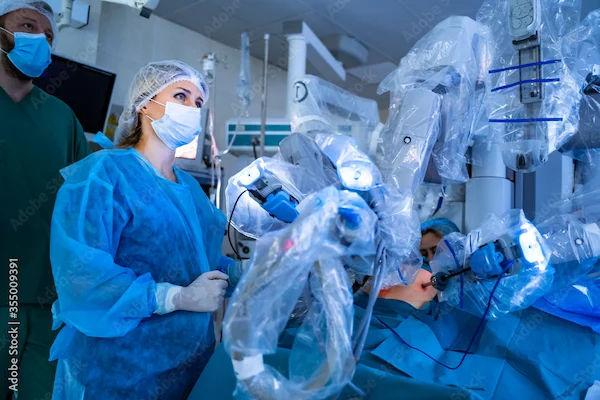Adjuvant Radiotherapy For Endometrial Cancer After Hysterectomy
Learn how adjuvant radiotherapy after hysterectomy helps manage endometrial cancer by reducing recurrence risks and improving survival rates. Explore its benefits, types, and what to expect.

Written by Dr.Sonia Bhatt
Last updated on 4th Jul, 2025

Introduction
If you or a loved one has been diagnosed with endometrial cancer and undergone a hysterectomy, your doctor may recommend adjuvant radiotherapy as part of your treatment plan. This can be overwhelming, but understanding why it’s needed and how it works can help you feel more confident about your care. In this article, we’ll explain what adjuvant radiotherapy is, why it may be recommended after a hysterectomy, what to expect during treatment, possible side effects and how to manage them and lifestyle tips for recovery.
What Is Adjuvant Radiotherapy?
Adjuvant radiotherapy is additional radiation therapy given after surgery (hysterectomy) to destroy any remaining cancer cells and reduce the risk of the cancer coming back. It is commonly used for endometrial (uterine) cancer when there’s a higher chance of recurrence.
Why Is It Needed After a Hysterectomy?
A hysterectomy removes the uterus (and sometimes nearby tissues), but in some cases, cancer cells may still remain in the pelvic area. Radiotherapy helps eliminate these cells, improving long-term outcomes.
Your doctor may recommend radiotherapy if:
The cancer was high-grade (aggressive)
The tumor had spread into the muscle wall of the uterus or nearby lymph nodes
There’s a risk of microscopic cancer cells remaining
Consult Top Specialists for Personalised Tips
Types of Adjuvant Radiotherapy for Endometrial Cancer
There are two main types:
1. External Beam Radiation Therapy (EBRT): Delivers radiation from outside the body, targeting the pelvic area.
2. Brachytherapy (Internal Radiation): Places a radioactive source inside the vagina for a short time to treat nearby tissues.
Sometimes, both types are used together for better results.
What to Expect During Treatment?
Things to expect during the treatment are as follows:
1. Before Treatment
Consultation: Your radiation oncologist will discuss the plan, benefits, and risks.
Simulation (Planning Session): You’ll undergo scans to map the treatment area. Small marks may be made on your skin to guide radiation.
2. During Treatment
EBRT Sessions: Typically 5 days a week for 4-6 weeks. Each session lasts about 10-20 minutes and is painless.
Brachytherapy Sessions: Done in 1-4 sessions, each lasting a few minutes. A device is placed in the vagina temporarily.
3. After Treatment
Follow-up visits will monitor your recovery and check for any side effects.
Possible Side Effects and How to Manage Them
Radiotherapy is effective but can cause temporary side effects, including:
Common Side Effects
Fatigue: Rest often, stay hydrated, and engage in light activity like walking.
Skin Irritation: The treated area may become red or dry. Use mild soap and avoid tight clothing.
Diarrhoea or Bladder Discomfort: Eat a low-fibre diet, drink plenty of fluids, and avoid caffeine.
Vaginal Dryness/Discomfort: Use water-based lubricants and follow your doctor’s advice on vaginal dilators if needed.
Most side effects improve within weeks after treatment.
Lifestyle Tips for Recovery
Some of the lifestyle tips for recovery are:
1. Eat a Balanced Diet: Focus on proteins, fruits, and vegetables to help your body heal.
2. Stay Hydrated: Drink plenty of water to flush out toxins.
3. Gentle Exercise: Walking or light yoga can reduce fatigue and improve mood.
4. Emotional Support: Talk to a counsellor or join a support group if you feel anxious.
When to Seek Help?
Contact your doctor if you experience:
Severe pain or bleeding
Persistent diarrhea or nausea
Unusual swelling or infections
Conclusion
Adjuvant radiotherapy plays a crucial role in preventing endometrial cancer from returning after surgery. While the process may seem daunting, knowing what to expect can ease your concerns. Always discuss any questions with your healthcare team—they are there to support you.
Consult Top Obstetrician and Gynaecologist
Consult Top Specialists for Personalised Tips

Dr. Priyanka Surisetty
Obstetrician and Gynaecologist
8 Years • MBBS, DGO
Visakhapatnam
Apollo 24|7 Clinic - Andhra Pradesh, Visakhapatnam

Dr Swatika Kumari
Obstetrician and Gynaecologist
19 Years • MBBS, DGO, DNB Obstetrics & Gynaecology
Nashik
Apollo 24|7 Clinic - Maharashtra, Nashik

Dr. Veena H
Obstetrician and Gynaecologist
16 Years • MBBS DGO
Bangalore
Apollo 24|7 Clinic - Karnataka, Bangalore

Dr. Mona Yadav
Obstetrician and Gynaecologist
19 Years • MBBS, MD (Obstetrics & Gynaecology)
Dombivli
Nulife multispeciality, Dombivli

Dr. Asha Rani Singh
Obstetrician and Gynaecologist
24 Years • MBBS DGO
Delhi
Dr Asha Rani Singh Clinic, Delhi
Consult Top Obstetrician and Gynaecologist

Dr. Priyanka Surisetty
Obstetrician and Gynaecologist
8 Years • MBBS, DGO
Visakhapatnam
Apollo 24|7 Clinic - Andhra Pradesh, Visakhapatnam

Dr Swatika Kumari
Obstetrician and Gynaecologist
19 Years • MBBS, DGO, DNB Obstetrics & Gynaecology
Nashik
Apollo 24|7 Clinic - Maharashtra, Nashik

Dr. Veena H
Obstetrician and Gynaecologist
16 Years • MBBS DGO
Bangalore
Apollo 24|7 Clinic - Karnataka, Bangalore

Dr. Mona Yadav
Obstetrician and Gynaecologist
19 Years • MBBS, MD (Obstetrics & Gynaecology)
Dombivli
Nulife multispeciality, Dombivli

Dr. Asha Rani Singh
Obstetrician and Gynaecologist
24 Years • MBBS DGO
Delhi
Dr Asha Rani Singh Clinic, Delhi




